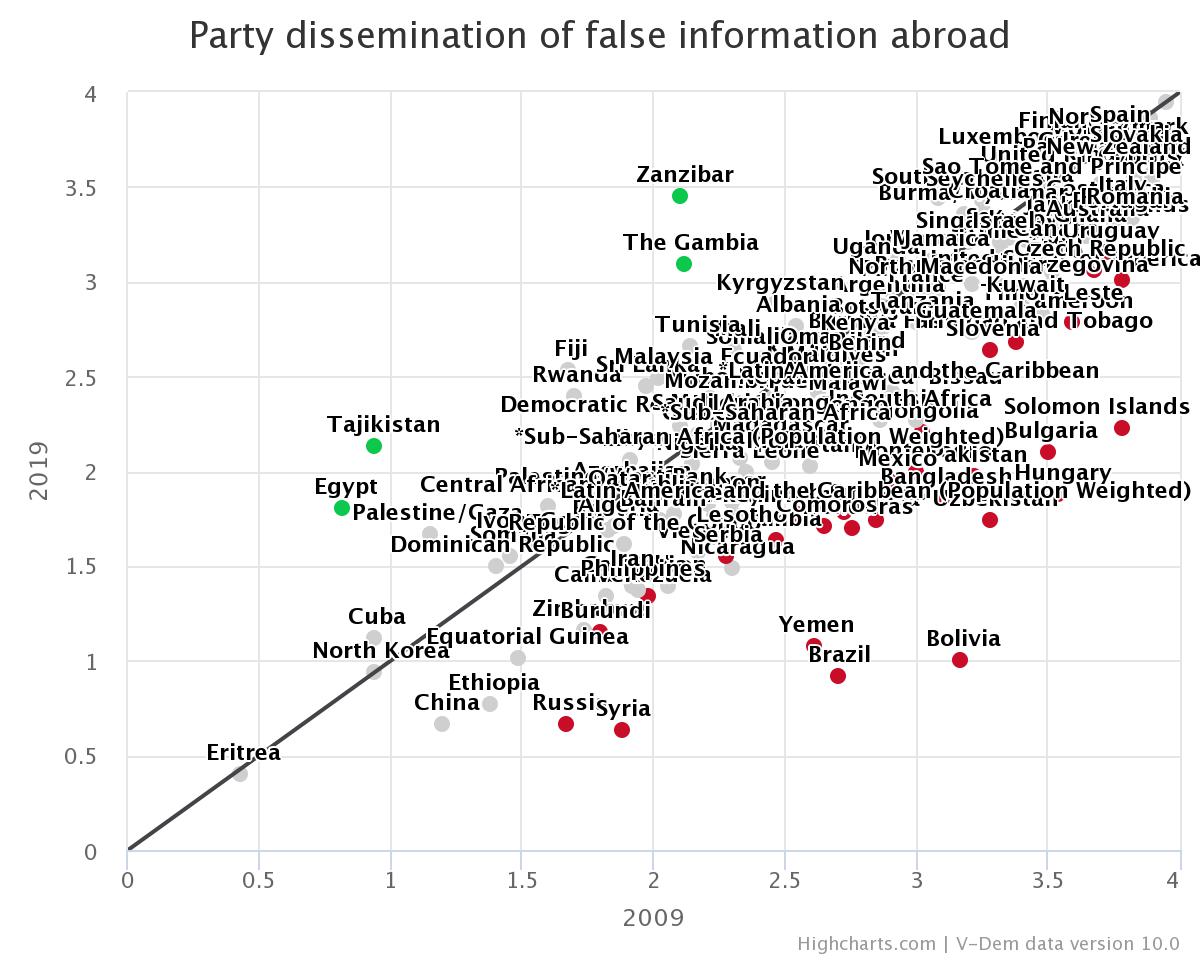World Telecommunication and Information Society Day
By: Lydia Finzel
May 18, 2020
Yesterday marked the World Telecommunication and Information Society Day, which celebrates the chances and possibilities that the internet and other information and communication technologies bring to societies and economies. However, political parties also use the internet increasingly to spread false information, domestically and abroad. This week’s graph uses indicators from the Digital Society Project survey to shed light on the willingness of political actors to influence information online.
This year‘s international World Telecommunication and Information Society Day seems now even more relevant than ever. The outbreak of COVID-19 – which has slowed down private and public life worldwide – has widely shown the internet’s ability to connect individuals despite physical distancing, allowing for us to continue working from home offices, teaching and learning through e-learning tools, and exchanging information through many other ways. Especially in times of a global threat like the Corona virus, facts and transparent information exchange are essential to increase trust and collective action to further combat the spread of the virus as well as to minimise individual panic.
Using the regional comparison tool, we explore changes in the last decade on indicators for party dissemination of false information abroad and domestic. These indicators capture how often political parties use social media to disseminate misleading viewpoints or use false information to influence citizens in their own country (domestic) and abroad (foreign). They range from zero to four, with higher values meaning less dissemination of false information. Countries appearing above the diagonal line in these graphs that are coloured green experienced significant improvements on party dissemination of false information, while those appearing below the diagonal line in red experienced significant declines.
These results illustrate the potential threat emerging from increasing government and party control over the internet. During current global pandemic, accurate reporting is essential to slow the spread of COVID-19. Misreporting could endanger human lives and the global economy. Yet, political actors in the U.S. and China have accused one another of providing false or misleading information on the pandemic for political gain, putting further strain on global political and economic relations.
To learn more about the Digital Society Project‘s and V-Dem‘s indicators and our online analysis tools, visit www.v-dem.net.


